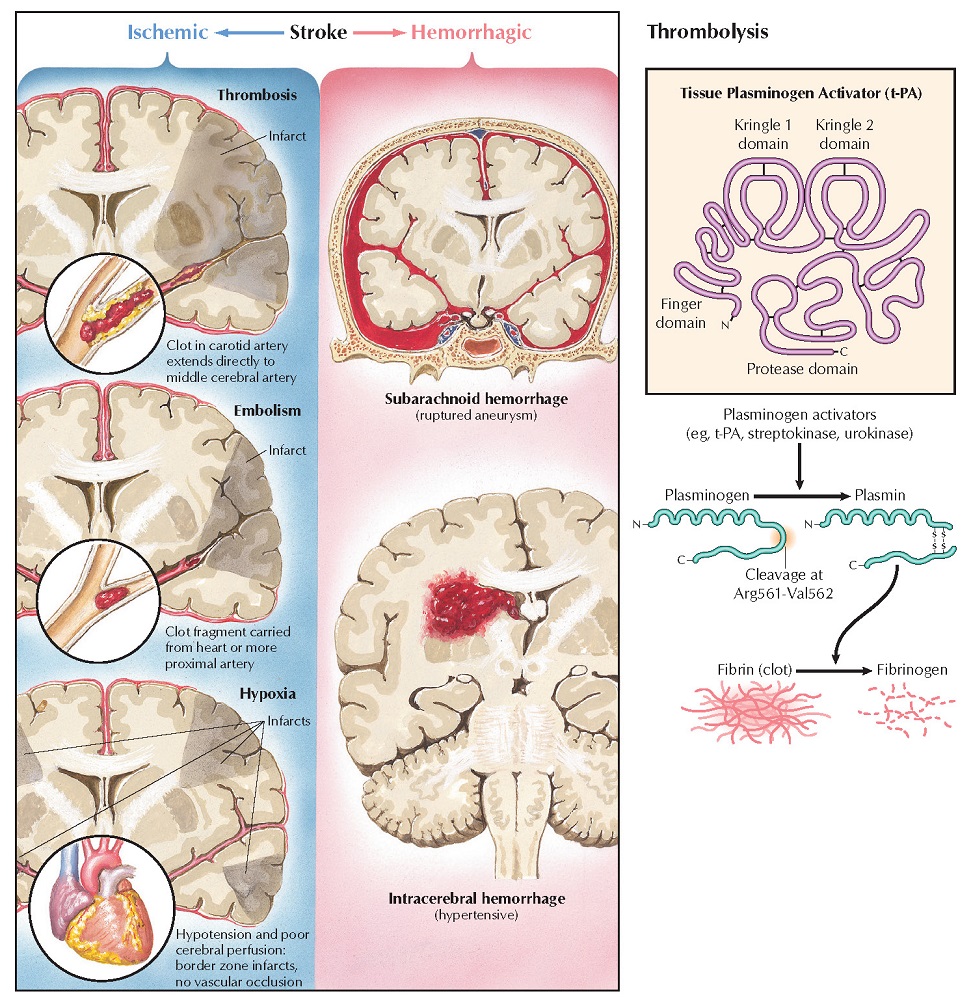Stroke: Symptoms and Drug Treatment
Strokes are cerebrovascular accidents with CNS effects.
Strokes can be categorized as ischemic (inadequate oxygen) or hemorrhagic
(excess blood). Most ischemic strokes are caused by thrombi or emboli caused by
cardiac or cerebrovascular disease, such as arteriosclerosis involving cerebral
blood vessels. Early treatment intervention reduces subsequent neuronal damage
and functional loss. The most common current drug therapies for ischemic stroke
involve use of intravenous thrombolytic agents, such as
alteplase or reteplase (tissue plasminogen activators), anistreplase (prodrug: streptokinase plus
recombinant human plasminogen), streptokinase, and urokinase (all plasminogen
activators). The most important adverse effect of these drugs is bleeding
(cerebral hemorrhage). Lowdose aspirin (COX1 inhibitor) is given for stroke
prevention. Hemorrhagic stroke requires anticoagulant or surgical intervention.
Research efforts now focus on drugs that may limit the extent of CNS damage
after stroke.





